Links
Important Dates
Last date for full Submission Deadline:
March 31, 2026 (Extended)
Last date for full Notification of Acceptance:
April 30, 2026 (Extended)
Last date for full Camera Ready Submission:
May 15, 2026 (Extended)
Contact Us
Secretary Office
icbeps@iaast.cn
Keynote Speakers
-
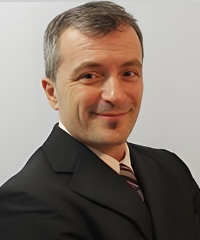
Carlos M. Travieso-González
Research field:Biometrics, Biomedical signals and images, Data mining, Classification system, Signal and image processing, Machine learning, and Environmental intelligence.
Professor, University of Las Palmas de Gran Canaria, Spain.
Carlos M. Travieso-González received the M.Sc. degree in 1997 in Telecommunication Engineering at Polytechnic University of Catalonia (UPC), Spain; and Ph.D. degree in 2002 at University of Las Palmas de Gran Canaria (ULPGC-Spain). He is a full professor of signal processing and pattern recognition and is head of the Signals and Communications Department at ULPGC, teaching from 2001 on subjects on signal processing and learning theory. His research lines are biometrics, biomedical signals and images, data mining, classification system, signal and image processing, machine learning, and environmental intelligence. He has researched in 52 international and Spanish research projects, some of them as head researcher. He is co-author of 4 books, co- editor of 27 proceedings books, guest editor for 8 JCR- ISI international journals, and up to 24 book chapters. He has over 450 papers published in international journals and conferences (81 of them indexed on JCR– ISI- Web of Science). He has published seven patents in the Spanish Patent and Trademark Office. He has been a supervisor on 8 Ph.D. theses (11 more are under supervision), and 130 master theses. He is the founder of The IEEE IWOBI conference series and the president of its Steering Committee, as well as the founder of both the InnoEducaTIC and APPIS conference series.He is an evaluator of project proposals for the European Union (H2020), Medical Research Council (MRC, UK), Spanish Government (ANECA, Spain), Research National Agency (ANR, France), DAAD (Germany), Argentinian Government, and the Colombian Institutions. He has been a reviewer in different indexed international journals (& lt; 70)and conferences (& lt; 250) since 2001.
-
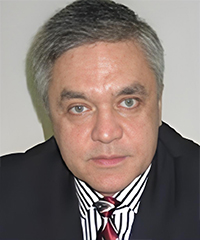
Sergey V. Suchkov
Research field:Immunochemical characteristics of three novel reina-specific antigens in humans and some mammals, Serology in ophthalmic oncology - findings and outlook for the future, Catalytic antibodies in immune-mediated disorders, Clinical and immune-mediated syndro.
Professor, The Russian University of Medicine, Russia.
Sergey Suchkov, graduated from Astrakhan State Medical University with MD in 1980. From 1980 through 1983 has been working as Res Associate, and from 1983 through 1985 as Senior Res Associate at the Inst of Medicical Enzymology, USSR Academy of Medical Sciences. In 1985, maintained his PhD at the Sechenov University. From 1986 through 1994 was a Senior Res Associate at a variety of the Research Institutions and Universities in Moscow. In 1989-1993, was trained at the NEI, NIH, Bethesda, MD, USA, and Wills Eye Hospital, Philadelphia, PA, USA, as well as at some of the British universities on the invitation of the Royal Society for Immunology. From 1994 through 2006, was a Director of the Division for Clinical Immunology & Immunobiotechnology, Vladimiskii Moscow Clinical Research Institute (MONIKI). In 2002, maintained his Doctor’s Degree at the National Institute of Immunology, Russia. From 2006 through 2014, was The First Vice-President responsible for Personalized and Precision Medicine of The University of World Politics and Law, Moscow, Russia. From 2003 through 2021, was a Professor of the Dept for Clinical Human Pathology of Sechenov University, Moscow, Russia. From 2014 through 2021, was a Professor and Chair of the Dept (since 2016 The Director of the Center) for Personalized & Precision Medicine of Sechenov University, oscow, Russia. From 2021 through Jan 2023, is a Professor, Chair of the Dept for Personalized Medicine, Precision Nutriology & Biodesign, and Vice-Director for Research, International Collaboration & Development of the Institute for Biotechology & Global Health of the RosBioTech National University, Russia. From 2007 through the present time, is a Professor of the Dept for Clinical Allergology & Immunology of the Russian University of Medicine, Moscow, Russia. From 2004 through 2021 was staying in USA, Europe and Japan, whilst doing a lot to implement technologies of Personalized and Precision Healthcare services into the daily clinical practice.
-

Paola Serena Ginestra
Research field:Biomanufacturing, Bioprinting, Mechanical Technology.
Professor, Department of Mechanical and Industrial Engineering, University of Brescia, Italy.
Prof. Paola Ginestra graduated at the Polytechnic Institute of Milan in Biomedical Engineering, obtaining the Master Degree in 2012. She worked at the Rizzoli Orthopedic Institute in Bologna as Biomedical Engineer from 2012 to 2014. She has completed her PhD from University of Brescia in Italy in 2017 and has been a visiting PhD student at the University of California Irvine, USA and in The Centro Renato Archer Campinas, Brazil. She carried out her postdoctoral studies at the University of Birmingham, UK. She is the research coordinator of the Manufacturing for Biomedical Applications Lab (BIOMBS) and part of the Directors Board of the European Scientific Association for Material Forming (ESAFORM). She has published more than 50 papers in reputed journals and has been serving as an editorial board member of repute. She has been part of the Scientific Committee in international conferences on biomanufacturing.
-
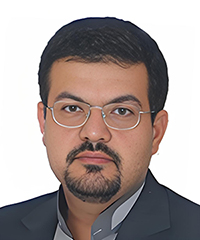
Ata Jahangir Moshayedi
Research field:Biomedical, Service robot, Machine learning/vision, Neuroscience, Sensor modeling, Bio feedback.
Associate Professor, Jiangxi University of science and Technology, China.
Dr. Ata Jahangir Moshayedi is an associate professor at Jiangxi University of Science and Technology in China, holds a PhD in Electronic Science from Savitribai Phule Pune University in India. He is a distinguished member of IEEE (Senior Member) and ACM, as well as a Life Member of the Instrument Society of India and a Lifetime Member of the Speed Society of India. Additionally, he contributes to the academic community as a valued member of various editorial teams for international conferences and journals. Dr. Moshayedi's academic achievements are, marked by a portfolio of over 90 papers published ,2 patent and 12 copyright, across esteemed national and international journals and conferences along with 3 books on robotics (VR and mobile olfaction) and embedded systems. In addition to his scholarly publications, he has authored three books and is credited with two patents and nine copyrights, emblematic of his pioneering contributions to the field. Currently, Dr. Moshayedi is actively engaged in pioneering work at Jiangxi University.
-
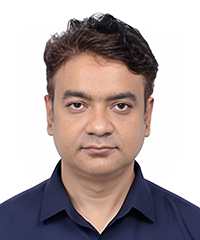
M. SHAMIM KAISER
Research field:Data analytics, Machine learning, Wireless network & Signal processing, Cognitive radio networks, Big IoT data, Healthcare, Neuroinformatics, and Cyber security.
Professor, Jahangirnagar University, Bangladesh.
Dr. Kaiser holds a Bachelor's and Master's degree in Applied Physics Electronics and Communication Engineering from the University of Dhaka, Bangladesh, and a Ph.D. degree in Telecommunication Engineering from the Asian Institute of Technology (AIT) Pathumthani, Thailand. He worked as a postdoc fellow at Anglia Ruskin University's Big data and Cyber Security Lab and as a Special Research Student at Tohoku University's Wireless Signal Processing and Networking Lab. His research interests include Data Analytics, Machine Learning, Wireless Network & Signal processing, Cognitive Radio networks, Big IoT data, Healthcare, Neuroinformatics, and Cyber Security. Dr. Kaiser has authored over 150 papers in various peer-reviewed journals and conferences. He is a member of several societies, including the Bangladesh Electronic Society, Bangladesh Physical Society, and NOAMI, and is the founding Chapter Chair of the IEEE Bangladesh Section Computer Society Chapter.
-
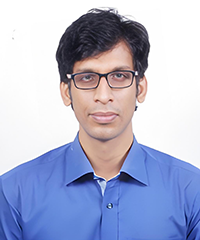
Shaharior Rahman Razu
Research field:Public health, Gender inequality, Sociology.
Associate Professor, Khulna University, Bangladesh.
Shaharior Rahman Razu is an Associate Professor at Khulna University, currently pursuing a Ph.D. on COVID-19 health management at the University of New England in Australia, where he also works as a Casual Academic. Previously, he completed doctoral research training at Chiang Mai University in Thailand and earned his undergraduate (1st position) and master’s (1st position) degrees in Sociology from Khulna University. In addition to teaching, Razu has published over 40 research articles in various journals focusing on public health, gender inequality, and sociology. He currently serves as an editor and reviewer for several international journals, including BMC Public Health (Springer Nature) and the Journal of Women’s Studies (Bridgewater State University, USA).
-
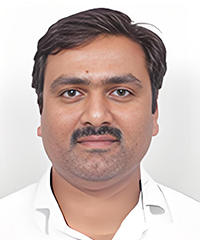
Mohana Kumara Patel
Research field:Plant Physiology, Bioprospecting, Plant metabolism, metabolic pathways, Multiomics.
Assistant Professor, Department of Biotechnology and Crop improvement, University of Horticultural Sciences, Bagalkot, India.
Dr. Mohana Kumara Patel is an eminent agricultural scientist with a B.Sc in Agriculture and Ph.D in Crop Physiology. He has authored over 25 impactful papers and holds two patentes. His achievements include a number of high-profile fellowships and awards, including the Commonwealth Fellowship, Institute Postdoctoral Fellowship at IIT Madras, and travel grants from DST/FAOB and the Science Academy in India, InRes C V Raman Prize and S Ramanujan Award for Outstanding Scientists. Dr. Mohana has been able to secure research grants from various organizations and has successfully completed ten distinct projects. His research interest areas include biochemical methods, bioprospecting, molecular approaches, and multi-omics approaches in medicinal plant research. His main research interests are: a) identification of anticancer drugs from plants and conserving them; b) Using mass spectrometry imaging to study the distribution patterns of secondary metabolites in plants; c) Performing tissue and cell type transcriptome analyses to discover pathway genes for metabolic engineering; and d) Studying boundary chemistry, i.e., the chemicals released during interaction between microbes, plants, and insects (chemical ecology) etc.
-
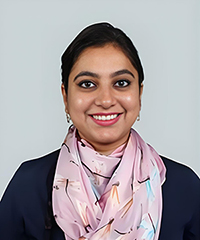
Guneet Inder Jit Kaur
Research field:Psychological skills training/ mental training, Organizational behaviour in sports, Psychology of sports excellence, Health and wellbeing, Exercise psychology, Sports and mental fitness, Psychology and sports rehabilitation, Psychology of coaching, Social psychology in sports
Assistant Professor, Central University of Rajasthan, India.
Dr. Guneet Inder Jit Kaur is Assistant Professor in the Department of Sports Psychology, School of Sports Sciences, Central University of Rajasthan. She is the Associate Editor of UGC Care listed journal- Indian Journal of Psychology and the Associate Editor of Asian Journal of Psychology and Education. As a Sports Psychologist, she has worked with athletes in the areas of mental training for performance enhancement. She has published 27 research articles and has presented 36+ research presentations at 66 International and National Conferences/Seminars and has recently been awarded Prof. Deepak Bhat Award for Best Paper Presentation in the session at the 56th National and 25th International conference of IAAP (2021). She has guided 4 M.Phil, 28 M.Sc. and 31 PGD sports psychology projects.
-
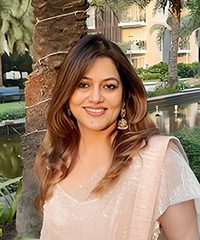
Neelam Kaushal
Research field:Bone Health/Osteoporosis Research, Pharmaceutical Medicine, AI-ESG Integration in Pharma.
Founder RXVP Pharma Consulting, Certified Independent Corporate Director (IICA, Wharton), India.
Dr. Neelam Kaushal is a highly accomplished physician-researcher with an MBBS degree from Dayanand Medical College and a PhD in Pharmaceutical Medicine from Jamia Hamdard, complemented by certifications including an Independent Board Director credential from IICA (2024) and Corporate Governance from Wharton (2025); as the founder and CEO of RXVP Pharma Consulting since January 2025, and formerly a leader at Sun Pharma from 2007 to 2024, she brings over 20 years of expertise in global drug development, life-cycle management, regulatory strategy, and pharmacovigilance, with a strong focus on integrating AI and ESG into the pharmaceutical value chain to enhance patient safety and stakeholder profitability, as evidenced by her achievements such as developing in-house medical capabilities that saved costs, supporting drug submissions and approvals for agencies like FDA and EMA, and authoring peer-reviewed manuscripts on bone health indexed on PubMed, while her multilingual proficiency in Punjabi, Hindi, and English, along with passions for generative AI, real-world evidence, and corporate governance, underscores her commitment to bridging gaps between drug innovation and practical healthcare solutions.